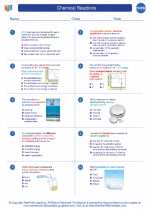Thyroid-Stimulating Hormone (TSH)
Thyroid-Stimulating Hormone (TSH) is a hormone produced by the pituitary gland, which is located at the base of the brain. TSH plays a crucial role in the regulation of the thyroid gland, which is responsible for controlling metabolism in the body.
Function of TSH:
TSH stimulates the thyroid gland to produce two hormones: thyroxine (T4) and triiodothyronine (T3). These hormones are essential for regulating metabolism, growth, and energy expenditure in the body. TSH acts as a messenger, signaling the thyroid gland to increase or decrease its hormone production based on the body's needs.
Regulation of TSH:
The release of TSH is controlled by the hypothalamus and the pituitary gland. The hypothalamus produces thyrotropin-releasing hormone (TRH), which signals the pituitary gland to release TSH. In turn, TSH stimulates the thyroid gland to produce T4 and T3. As the levels of T4 and T3 in the blood increase, they provide negative feedback to the pituitary gland and hypothalamus, inhibiting the release of TRH and TSH. This negative feedback loop helps maintain the balance of thyroid hormones in the body.
Importance of TSH Testing:
Measuring TSH levels in the blood is a common diagnostic tool for assessing thyroid function. Abnormal TSH levels can indicate an underactive or overactive thyroid gland. An elevated TSH level suggests hypothyroidism, where the thyroid gland is not producing enough hormones. On the other hand, a decreased TSH level may indicate hyperthyroidism, characterized by an overactive thyroid gland. Monitoring TSH levels is crucial for diagnosing and managing thyroid disorders.
Study Guide:
- Describe the role of TSH in regulating thyroid function.
- Explain the negative feedback loop involved in TSH regulation.
- Discuss the significance of TSH testing in diagnosing thyroid disorders.
- Compare and contrast hypothyroidism and hyperthyroidism based on TSH levels.
- Formulate a diagram illustrating the feedback loop between the hypothalamus, pituitary gland, and thyroid gland in regulating TSH and thyroid hormone production.
◂Chemistry Worksheets and Study Guides High School. Chemical Reactions

 Worksheet/Answer key
Worksheet/Answer key
 Worksheet/Answer key
Worksheet/Answer key
 Worksheet/Answer key
Worksheet/Answer key
 Worksheet/Answer key
Worksheet/Answer key
 Worksheet/Answer key
Worksheet/Answer key
 Vocabulary/Answer key
Vocabulary/Answer key
 Vocabulary/Answer key
Vocabulary/Answer key
 Vocabulary/Answer key
Vocabulary/Answer key
